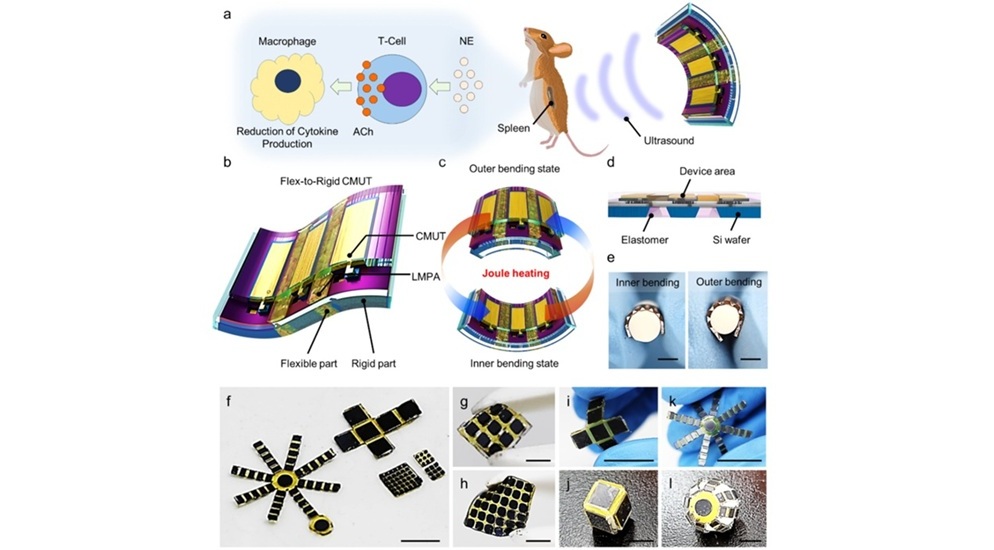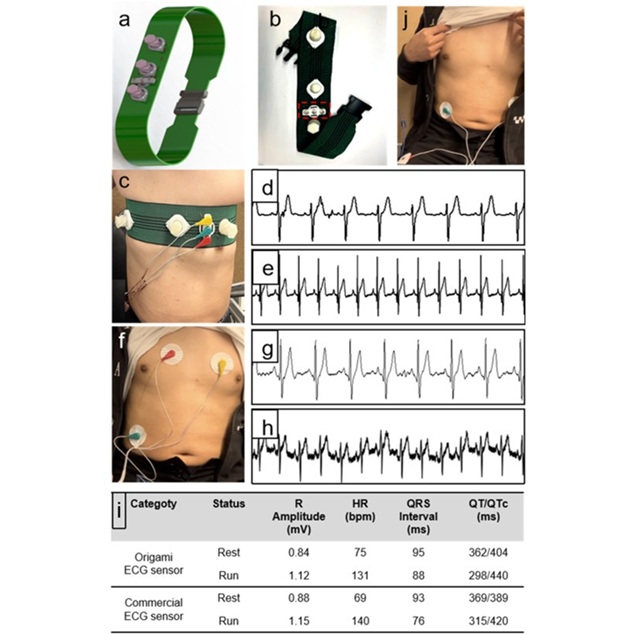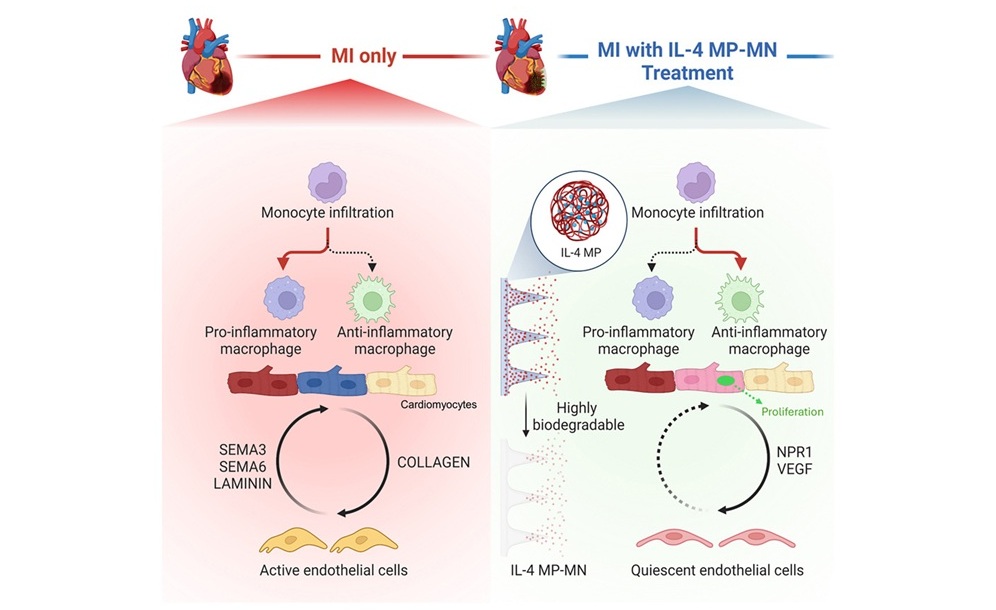Teleflex to Acquire BIOTRONIK’s Vascular Intervention Business
|
By HospiMedica International staff writers Posted on 27 Feb 2025 |

Teleflex (Wayne, PA, USA) has entered into a definitive agreement to acquire substantially all of the Vascular Intervention business of BIOTRONIK (Berlin, Germany) for an estimated cash payment on closing of approximately EURO 760 million, less certain adjustments as provided in the purchase agreement including certain working capital not transferring and other customary adjustments. The acquisition is subject to customary closing conditions, including receipt of certain regulatory approvals, and is expected to be completed by the end of the third quarter of 2025.
The acquisition reflects Teleflex’s commitment to investing in the estimated USD 10 billion interventional cardiology and peripheral vascular market served by the company’s portfolio post-close. The acquired business will expand the Teleflex Interventional portfolio to include a broad suite of vascular intervention devices such as drug-coated balloons, drug-eluting stents, covered stents, balloon and self-expanding bare metal stents, and balloon catheters. In 2023, approximately 75% of the acquired revenues were generated by coronary interventions while the remaining approximately 25% were associated with peripheral interventional procedures. The acquired Vascular Intervention business consists of a comprehensive and differentiated portfolio for coronary and peripheral interventions performed in the cath lab and interventional radiology suites.
In coronary vascular interventions, key products include the Pantera Lux Drug-Coated Balloon Catheter, the novel PK Papyrus Covered Coronary Stent for acute coronary artery perforations, and the Orsiro Mission Drug Eluting Stent, an ultrathin drug-eluting stent with differentiated clinical features. For peripheral interventions, the portfolio includes the Passeo-18 Lux Peripheral Drug-Coated Balloon Catheter, Dynetic-35 Balloon-Expandable Cobalt Chromium Stent, and the Pulsar-18 T3 Self-Expanding 4F Stent. The acquisition of the Vascular Intervention business will also allow Teleflex the opportunity to invest in and expand the clinical trial program for BIOTRONIK’s Freesolve, a sirolimus-eluting Resorbable Metallic Scaffold (RMS) technology, including the possible pursuit of the U.S. market. Freesolve, which received its CE Mark in February 2024, is indicated in CE mark accepting countries for de novo coronary artery lesions. The combination of temporary scaffolding with drug delivery is anticipated to address the current trend in interventional coronary and endovascular procedures toward leaving behind less permanent hardware.
As demonstrated in the BIOMAG-I study, Freesolve RMS demonstrated resorption after 12 months, a target lesion failure rate comparable to contemporary drug-eluting stents, and no definite or probable scaffold thrombosis. The European pivotal BIOMAG-II study is now enrolling. Teleflex’s established peer-to-peer education, patient outreach, and clinical platform for its existing Interventional business will be further leveraged by the acquired portfolio of coronary vascular and peripheral vascular intervention devices. As the interventional cardiology and peripheral intervention markets grow on a global basis, Teleflex anticipates that this acquisition will enhance its offerings to cardiac and peripheral care specialists, while significantly advancing its corporate growth objectives.
“We are excited to announce the acquisition of BIOTRONIK’s Vascular Intervention business, which we anticipate will significantly enhance our global presence in the cath lab, expand our suite of innovative technologies, and improve patient care” said Liam Kelly, Chairman, President and Chief Executive Officer of Teleflex. “We believe the acquisition will allow us to position this advanced coronary portfolio alongside our existing Interventional business and establish our global footprint in the fast-growing peripheral intervention market. In particular, the acquired coronary products will be highly complementary to our well-established complex percutaneous coronary intervention (PCI) platform and expand and enhance the legacy Interventional salesforce and offerings by combining existing Teleflex access products with the Vascular Intervention therapeutic devices. The acquired business is rooted in robust research and development, clinical expertise, and global manufacturing capabilities, which we believe will further bolster Teleflex’s innovation pipeline, and position the company to participate in the emerging potential for resorbable scaffold technologies. We believe the acquired business will be a meaningful contributor to our growth in the coming years, diversify our geographic revenue mix with 50% of the acquired revenues generated in EMEA3, and provide additional scale for investment into innovation.”
Related Links:
Teleflex
BIOTRONIK
Latest Business News
- Philips and Masimo Partner to Advance Patient Monitoring Measurement Technologies
- B. Braun Acquires Digital Microsurgery Company True Digital Surgery
- CMEF 2025 to Promote Holistic and High-Quality Development of Medical and Health Industry
- Bayer and Broad Institute Extend Research Collaboration to Develop New Cardiovascular Therapies
- Medtronic Partners with Corsano to Expand Acute Care & Monitoring Portfolio in Europe
- Expanded Collaboration to Transform OR Technology Through AI and Automation
- Becton Dickinson to Spin Out Biosciences and Diagnostic Solutions Business
- Boston Scientific Acquires Medical Device Company SoniVie
- 2026 World Hospital Congress to be Held in Seoul
- Philips and Mass General Brigham Collaborate on Improving Patient Care with Live AI-Powered Insights
- Arab Health 2025 Celebrates Landmark 50th Edition
- Boston Scientific Acquires Medical Device Company Intera Oncology
- MEDICA 2024 to Highlight Hot Topics of MedTech Industry
- Start-Ups To Once Again Play Starring Role at MEDICA 2024
- Boston Scientific to Acquire AFib Ablation Company Cortex
- Hologic Acquires Gynesonics to Strengthen Existing Gynecological Surgical Business
Channels
Critical Care
view channel
Nanogel Technology Almost 100% Effective in Destroying Drug-Resistant Bacteria Within Hours
Antibiotic resistance is one of the most serious global health threats, driven by bacteria that evade treatment and form protective biofilms that shield them from drugs. Pathogens such as Pseudomonas aeruginosa,... Read more
Wearable Ultrasound Sensor Delivers Noninvasive Treatment Without Surgery
Wearable ultrasound devices have long struggled with low acoustic power and poor structural stability, limiting their use in high-resolution imaging and therapeutic applications. Conventional flexible... Read moreSurgical Techniques
view channelNovel Endoscopy Technique Provides Access to Deep Lung Tumors
Detecting lung cancer early can save lives, but diagnosing small tumors deep in the outer regions of the lungs remains a major clinical challenge. Although CT scans frequently identify tiny suspicious... Read more
New Study Findings Could Halve Number of Stent Procedures
When a coronary artery becomes acutely blocked during a heart attack, opening it immediately is essential to prevent irreversible damage. However, many patients also have other narrowed vessels that appear... Read morePatient Care
view channel
Revolutionary Automatic IV-Line Flushing Device to Enhance Infusion Care
More than 80% of in-hospital patients receive intravenous (IV) therapy. Every dose of IV medicine delivered in a small volume (<250 mL) infusion bag should be followed by subsequent flushing to ensure... Read more
VR Training Tool Combats Contamination of Portable Medical Equipment
Healthcare-associated infections (HAIs) impact one in every 31 patients, cause nearly 100,000 deaths each year, and cost USD 28.4 billion in direct medical expenses. Notably, up to 75% of these infections... Read more
Portable Biosensor Platform to Reduce Hospital-Acquired Infections
Approximately 4 million patients in the European Union acquire healthcare-associated infections (HAIs) or nosocomial infections each year, with around 37,000 deaths directly resulting from these infections,... Read moreFirst-Of-Its-Kind Portable Germicidal Light Technology Disinfects High-Touch Clinical Surfaces in Seconds
Reducing healthcare-acquired infections (HAIs) remains a pressing issue within global healthcare systems. In the United States alone, 1.7 million patients contract HAIs annually, leading to approximately... Read moreHealth IT
view channel
EMR-Based Tool Predicts Graft Failure After Kidney Transplant
Kidney transplantation offers patients with end-stage kidney disease longer survival and better quality of life than dialysis, yet graft failure remains a major challenge. Although a successful transplant... Read more

















